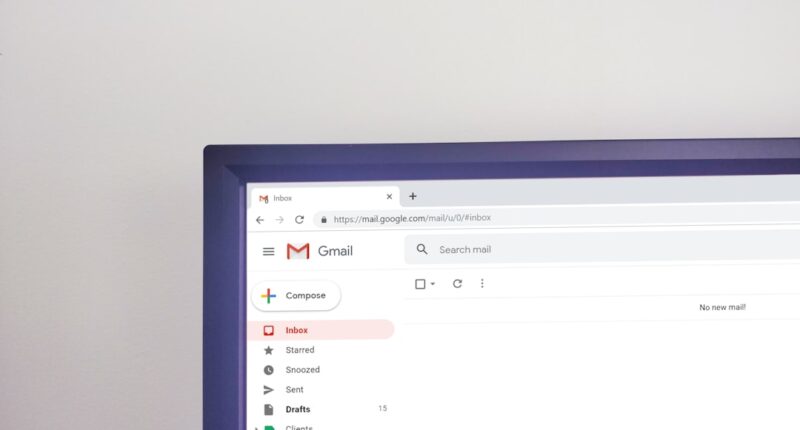Some people & organizations use unethical marketing techniques to outperform their competitors in the fiercely competitive music industry. Black hat techniques are methods of promoting music & reaching a wider audience through misleading & manipulative means. These strategies can seem like a quick way to get rich, but they often have negative effects and harm an artist’s reputation over time. This article looks at a number of common black hat strategies used in music marketing and assesses the dangers and unfavorable effects of using them. Industry professionals and artists can make more informed decisions about their promotional strategies & navigate the music marketing landscape more skillfully by being aware of these unethical methods.
Key Takeaways
- Black hat techniques in music marketing involve unethical and deceptive tactics to gain an unfair advantage in promoting music.
- Purchasing email lists and using fake email addresses is a black hat technique that violates privacy laws and damages the artist’s reputation.
- Scraping email addresses from websites and social media platforms without consent is unethical and can lead to legal consequences.
- Using deceptive tactics to collect email addresses, such as misleading opt-in forms, is dishonest and can result in a loss of trust from fans.
- Sending unsolicited emails and spamming can lead to legal repercussions and damage the artist’s relationship with their audience.
Purchases of email lists and phony addresses. Purchasing email lists and using fictitious email addresses to send promotional material is one of the most popular black hat methods used in music marketing. This practice entails purchasing email address lists from outside sources, frequently without the members’ consent, and using the addresses to send unsolicited marketing emails. deceptive email strategies. False email addresses are another black hat method in email marketing that tricks recipients into opening and responding to unsolicited messages.
The purpose of this dishonest strategy is to fool recipients into opening an email by fabricating phony email addresses that seem to be from reliable sources, like record labels or influential members of the music industry. Black Hat Techniques’ Repercussions. Although it might appear like a quick way to connect with fans, this is a blatant invasion of privacy & could land the marketer in hot water legally. Apart from the legal ramifications, using fictitious email addresses can lead to blacklisting by email service providers, which can make it challenging to connect with real fans in the future. The artist or organization promoting the promotion suffers reputational harm in addition to betraying the recipient’s trust. The practice of harvesting email addresses from websites and social media platforms is another black hat method frequently employed in music marketing.
This technique entails taking email addresses from social media profiles and websites using automated tools without the users’ knowledge or permission. This not only contravenes the terms of service of numerous websites and social media platforms, but also the privacy of the people whose email addresses are being scraped. Apart from facing legal repercussions, email address scraping may lead to unfavorable press coverage and harm the standing of the artist or organization promoting the content.
Attempting to promote music & gain followers on social media platforms, some marketers employ automated bots in addition to email address scraping to send bulk messages to individuals. This approach irritates and turns off potential fans in addition to breaking the terms of service of the majority of social media sites. Also, sending messages via automated bots can get you banned from social media, which makes it harder to communicate with real fans in the future. For music marketers, using automated bots & email address scraping are unethical practices that can have serious repercussions.
Various music marketers employ misleading strategies to obtain email addresses from prospective fans, apart from buying email lists and harvesting email addresses. This could be setting up fictitious competitions or freebies to get people to give their email addresses, then using those addresses for marketing without getting their permission. Also, some marketers deceive people into giving their email addresses by using misleading language or making exaggerated claims, betraying their confidence and possibly harming their reputation in the process.
Although these strategies might appear like a quick fix for growing an email list, they can have major legal repercussions and damage the standing of the artist or business doing the promotion. Hidden opt-in checkboxes or pre-checked boxes on websites and landing pages are another dishonest method of obtaining email addresses. This technique entails either hiding the choice for people to decline receiving promotional emails or enrolling them automatically without their permission. It is against the law & regulations regarding privacy, & it also betrays the confidence of prospective fans and may bring discredit upon the artist or promotion company. In general, it is unethical to use deceptive methods to obtain email addresses, and music marketers may face severe consequences as a result.
Sending unsolicited emails and engaging in spamming is one of the most well-known black hat methods used in music marketing. This practice, which frequently violates anti-spam laws and regulations, entails sending bulk emails to people who have not granted permission to receive promotional material. The artist or company promoting the promotion suffers reputational harm in addition to annoying and alienating potential fans. Spam and unsolicited emailing can have negative effects on your reputation from email service providers, including being blocked from future communications with genuine fans. Legal repercussions are not the only consequences of this behavior.
In an effort to promote music and attract followers on social media platforms, some music marketers also employ automated software to send out bulk messages. This approach irritates and turns off potential fans in addition to breaking the terms of service of the majority of social media sites. Also, sending bulk messages via automated software might get you banned from social media, which makes it harder to connect with real fans later on. In general, sending unsolicited emails and engaging in spam is a dishonest activity that can have detrimental effects on music marketers. Breach of Trust and Damage to Reputation.
Using clickbait & making exaggerated claims in order to acquire email subscribers is a popular black hat strategy in the music industry. In order to persuade people to submit their email addresses, this entails crafting deceptive or inflated headlines and content. Potential fans’ trust is betrayed, and the artist or business promoting the promotion suffers reputational harm as a result.
Legal Implications and Adverse Effects. Using clickbait & false promises can have negative publicity and lead to legal ramifications, in addition to making it difficult to develop a long-term following of devoted fans. Also, in order to get people to give their email addresses, some music marketers use misleading language or make untrue promises in their promotional materials. Deception as an Unethical Practice. Beyond the potential legal ramifications, employing misleading wording and exaggerated claims can lead to bad press and hinder the development of a devoted following over time.
In general, it is unethical and can have major consequences for music marketers to use clickbait and false promises to attract email subscribers. Black hat music promotion tactics can have detrimental effects on both businesses and artists. These actions harm the reputation and trust of the people running the promotion in addition to breaking privacy laws and regulations. E-mail service providers may blacklist you, you may be banned from social media sites, and you may face legal ramifications if you use black hat techniques. Also, these behaviors may make it challenging to develop a devoted fan base and succeed over the long haul in the music business.
In conclusion, even though using black hat strategies to market music may seem like a quick & simple way to succeed, doing so can have negative long-term effects that harm an artist’s reputation. Rather than utilizing unethical strategies, artists and organizations ought to concentrate on developing sincere connections with their audience, offering insightful content, and getting permission before distributing promotional materials. A devoted fan base & long-term success in the business can be attained by music marketers who prioritize moral behavior.
FAQs
What are black hat techniques for building an email list for music promotion?
Black hat techniques for building an email list for music promotion are unethical and often involve tactics such as buying email lists, scraping email addresses from websites, or using deceptive methods to collect email addresses without the user’s consent.
Why are black hat techniques for building an email list unethical?
Black hat techniques for building an email list are unethical because they violate the privacy and consent of individuals whose email addresses are being collected. These techniques also go against the guidelines set by email service providers and can result in legal consequences.
What are the risks of using black hat techniques for building an email list for music promotion?
The risks of using black hat techniques for building an email list for music promotion include damaging your reputation as a musician or music promoter, being banned from email service providers, facing legal action for violating privacy laws, and having your emails marked as spam.
What are the alternatives to black hat techniques for building an email list for music promotion?
Alternatives to black hat techniques for building an email list for music promotion include using opt-in forms on your website, offering valuable content in exchange for email sign-ups, promoting your email list through social media and other marketing channels, and engaging with your audience to encourage them to subscribe to your email list voluntarily.









